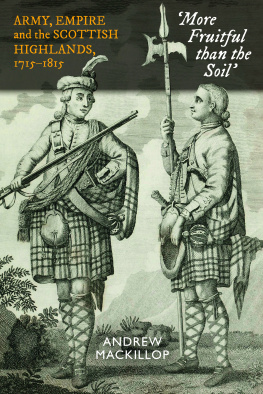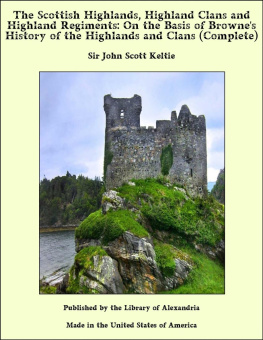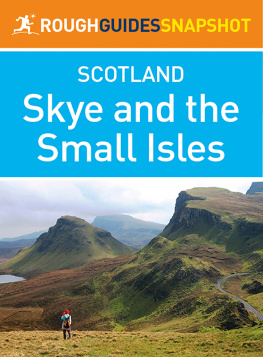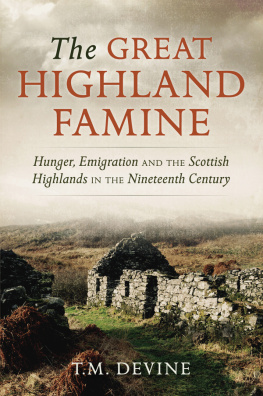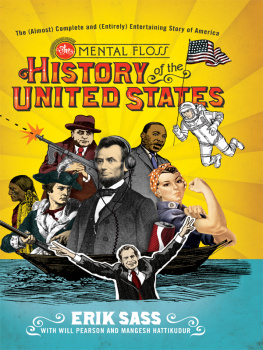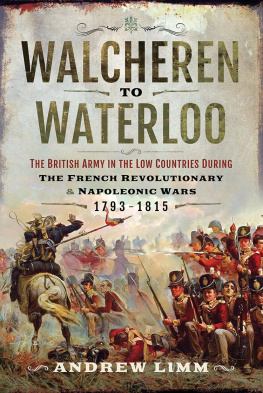MORE FRUITFUL THAN THE SOIL
MORE FRUITFUL THAN THE SOIL
Army, Empire and the Scottish Highlands, 17151815
ANDREW MACKILLOP

This eBook was published in Great Britain in 2021 by John Donald,
an imprint of Birlinn Ltd
Birlinn Ltd
West Newington House
10 Newington Road
Edinburgh
EH9 1QS
www.birlinn.co.uk
First published in 2000 by Tuckwell Press
Copyright Andrew Mackillop, 2000
eBook ISBN 9781788853927
British Library Cataloguing in Publication Data
A catalogue record for this book is available on request from the British Library
The right of Andrew Mackillop to be identified as the author of this work has been asserted by him in accordance with the Copyright, Design and Patent Act 1988
Typeset by Hewer Text Ltd, Edinburgh
Contents
Tables
Military Officers, their Relations and the Scottish County Electorate, 1788
Officers and Half-Pay Officers of Highland Regiments, 17401784
Origin and Social Profile of Military Personnel, Annexed Estates, 17634
Social and Tenurial Origins of Glenorchy and Netherlorne Recruits, 1759
Percentage of Hired or Family Recruits, Perthshire Estate, 1795
Relative Cost of Rent and Hired Recruits, Breadalbane Estate, 17935
Structure of Perthshire Estate, 1793 and Social Origins of Recruits, 17935
Structure of Argyll Estate, 1788 and Social Origins of Recruits, 17935
Lewis Kelp Production, 17941799
Impact of Recruiting upon Manpower and Farm Structure, 17781799
Social Origins of Recruits from Atholl and North Uist Estates, 17781799
Half-Pay Officers on Highland Estates, 17681804
Military Officers and the Sutherland Estate, 1802
Chelsea Pensioners from Highland Counties and Battalions, 17401800
Chelsea Pensioners and Highland Estates, 1764
Military Earnings Relative to Rent, Lochbuie Estate, Mull, 17951796
Volunteer Pay Relative to Rent in the West Highlands and Islands, 17951802
Type of Land Promise to Highland Soldiers, 1790s
Half-Pay and Exchange Rates, 1766
British and Highland Half-Pay Officers Reduced in 1763
Men Raised in England, Ireland and Scotland under the Additional Act and Enlisting in the Regular Army, June 1804-December 1805
Abbreviations
A.U.L. | Aberdeen University Library |
B.A.M. | Blair Atholl Muniments |
B.L. | British Library, London |
C.D.T.L. | Clan Donald Trust Library, Armadale, Skye |
D.C.M. | Dunvegan Castle Muniments |
D.H. | Dumfries House |
F.E.P. | Forfeited Estate Papers |
G.C.A. | Glasgow City Archive |
G.U.B.R.C. | Glasgow University Business Records Centre |
G.U.L. | Glasgow University Library |
H.M.C. | Historical Manuscripts Commission |
H.R.A. | Highland Regional Archive, Inverness |
J.R.L. | John Rylands Library, Manchester |
M.L. | Mitchell Library, Glasgow |
N.L.S. | National Library of Scotland, Edinburgh |
P.R.O. | Public Record Office, Kew, London |
S.R.O. | Scottish Record Office, Edinburgh (now National Archives of Scotland) |
Glossary
Baile | A farm township |
Bolls | A Scottish weight measure not exceeding six bushels |
Duthchas | The heritage of a clan, usually conceived of as favourable access to land and resources |
Fencible regiment | Unit raised for service only within Scotland. After 1794 extended to Ireland and Europe |
Grassum | Customary one-off payment by tenants over and above annual rents to the landlord upon receiving or renewing a tack |
Line regiment | Regular army unit with no geographic restrictions on service destination |
Mail land | Unit assessing farm productivity and rent levels |
Merkland | Unit of land assessed for taxation purposes at 13 shillings 1/3d sterling. |
Na Daoine | The Men. Lay religious preachers |
Off reckonings | Payments made to a regimental colonel for recruiting and maintaining his men |
Rouping | An auction |
Steelbow | Credit, often in the form of seed, stock or farming equipment, from landlord to tenant |
Souming | Assessing or fixing the number of tenant stock on a farms common grazing |
Wadset | A mortgage a farm and rental assigned to a creditor as method of interest payment |
Acknowledgements
In writing this work I have become indebted to a significant number of people and institutions. As the bulk of my research was completed at these two repositories I would first like to register my sincere appreciation to the staff of the National Archives of Scotland (formerly the Scottish Record Office) and National Library of Scotland. I would also like to thank the following people or institutions for allowing me access to the collections in their possession: Atholl Estates, the Duke of Buccleuch, the Dumfries family, Mr. John Macleod and the Clan Donald Trust. I would especially like to thank Mr Donald Stewart, until recently archivist at Dunvegan, for his friendly welcome and extremely helpful approach to my requests for documents.
This work is an extended version of my thesis on Highland recruitment, which I completed at the Scottish History Department at Glasgow University. Ironically, I was first nudged towards this subject by Dr. Lionel Glassey of the Modern History Department. In helping me decide that recruiting, or, to be more precise, its socio-economic effects, was an obviously neglected area worthy of examination, Dr Glassey not only spared himself the ordeal of perhaps having to tutor me but unselfishly provided a rather unfocused student with some sense of purpose. When I first started my research I benefited from the expertise of Allan Macinnes, who not only brought home to me the worth of Highland history within a Scottish context, but also encouraged me to view the region as very much a part of the evolving British Empire. Despite his departure to Aberdeen he was good enough to review certain aspects of the last chapter and suggest some additional lines of argument, for which I am grateful. Dr. Colin Kidd was typically generous not only in offering general support and friendly criticism, but also in immediately suggesting appropriate articles for many of my queries, no matter how apparently obscure. Similarly, I would like to express my warm thanks to the external examiner of my thesis, Don Withrington, who characteristically dissected the all-too apparent weaknesses in my work. A special thank you is also required to Professor Ted Cowan, who supervised the final years of my Ph.D. As well as providing much needed criticism and review of my work, his mixture of forthright encouragement, broad contextual analysis and injections of humour helped me enormously. I do hope I have persuaded him that the issue of recruitment entails more than buttons and brass military history.
Next page
